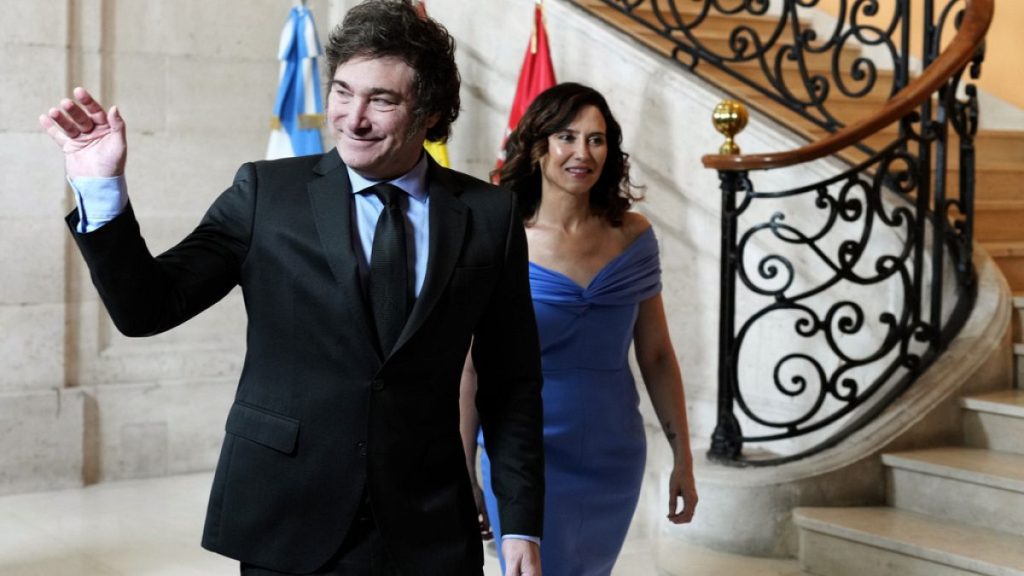Argentine President Javier Milei returned to Spain for a second visit, which comes just weeks after his previous trip to Madrid worsened a diplomatic crisis between the two countries. Milei’s latest visit, like his previous one, did not include any plans for official meetings with senior Spanish officials. However, during his stay, Milei did meet with Madrid’s right-wing regional president, Isabel Díaz Ayuso, who is a vocal critic of Spain’s socialist Prime Minister Pedro Sánchez. Milei has generated numerous diplomatic spats with his controversial opinions and outspoken style since becoming president last December.
During Milei’s previous visit to Spain, he attended a far-right rally in Madrid and made inflammatory remarks against Prime Minister Sánchez, accusing his wife of corruption and describing socialism as “cursed and carcinogenic.” In response, Spain withdrew its ambassador from Buenos Aires, a move that Milei criticized as typical of an arrogant socialist government. The feud between Milei and Spain could have economic implications, as Spain is Argentina’s second-largest foreign investor after the United States, with significant investments in the country. Additionally, hundreds of thousands of Spaniards and Argentines live in each other’s countries, making diplomatic tensions a concern for both governments.
Milei’s trip to Spain was followed by scheduled visits to Germany and the Czech Republic. In Germany, Milei had planned to meet with Chancellor Olaf Scholz, a center-left leader whose politics and style sharply contrast with those of Milei. However, plans for a joint news conference and military honours were later cancelled, with Milei expressing a clear refusal to hold a news conference. The visit to Germany was described as a “very short working visit” that was expressly at the wish of the Argentine president, highlighting the strained diplomatic relations between Milei and European leaders.
The visit to Spain and subsequent trips to Germany and the Czech Republic have underscored Milei’s willingness to challenge traditional political norms and engage with leaders who hold contrasting views. Milei’s self-described anarcho-capitalist beliefs and fiery rhetoric have made him a controversial figure both at home and abroad. His interactions with European leaders have further highlighted the tensions between his government and key international partners, raising concerns about the economic and diplomatic consequences of his confrontational approach.
As Milei continues to navigate diplomatic challenges and international relations, the impact of his visits and interactions with world leaders remains to be seen. His unapologetic stance against socialist governments and advocacy for free-market principles have garnered support from some quarters but have also sparked criticism and concern over his confrontational style. The evolving relationship between Milei and key allies like Spain, Germany, and the Czech Republic will likely shape Argentina’s foreign policy and economic prospects in the coming months, as the president seeks to implement his agenda amidst a backdrop of increasing global scrutiny and skepticism.


